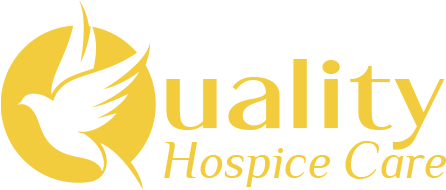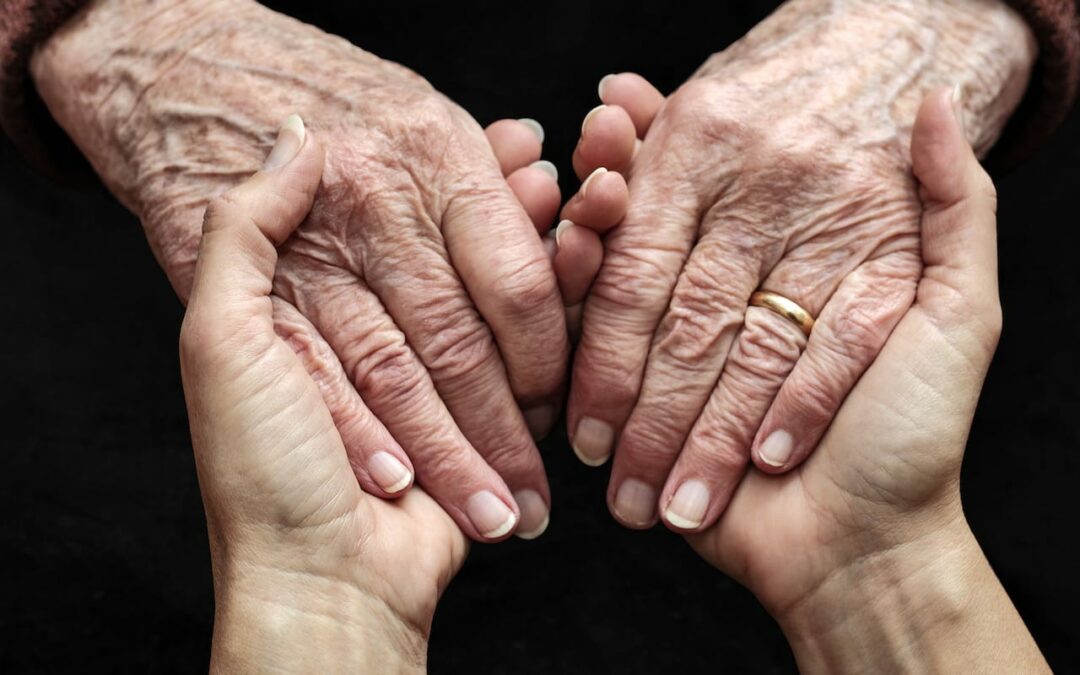Did you know that hospice is not giving up – it is actively choosing to have a voice and control during the final stages of life.
Hello & welcome back to Quality Hospice Care’s “Did You Know” blog. I am Jill Jones, Administrator of Quality Hospice Care. The purpose of this blog is to educate about hospice, its purpose, and the services it provides. I would also like these monthly posts to dispel the many myths and inaccuracies that the general public may have about hospice. I am a firm believer that education is empowering. It allows us to make the best decisions that aligns with our goals which are of upmost importance especially when preparing for end-of-life. As with most things, we tend to fear what we don’t know.
One of the statements that we hear frequently at Quality Hospice Care from family members is, “I don’t want my husband (mom, dad, etc) to feel like I’m giving up on them.” Recent studies have shown that approximately 70% of Americans wish to die at home surrounded by their loved ones. However, less than half do. Electing to have hospice is far from “giving up”. It’s just the opposite. It allows the patient an opportunity to have their goals and wishes honored for their end-of-life care. Hospice relieves suffering, promotes dignity and facilitates closure for the patient and family.
Many years ago, when I was a new nurse, I was talking to a physician assistant about a mutual friend’s mother that had just received a terminal prognosis. This lady was elderly and had been battling multiple health issues for quite a few years. I remember saying to the physician assistant that if I were her family, I wouldn’t even tell her the bad news. What the physician assistant said to me, I have carried with me for many, many years. It was an eye-opener when he said, “what if there are things that she needs to tell people?” I feel this is such a profound question worthy of being talked about. At end-of-life we don’t want to think of the “what-ifs”. Merriam-Webster defines hope as “desire accompanied by expectation of or belief in fulfillment”. Hospice care gives an opportunity for a patient’s hope to be redefined in their personal life – mending and restoring relationships, spending quality time with the people we love, finding peace and comfort, perhaps settling things that don’t need to be left unresolved. Maybe it’s time to create a new bucket list. Time which was previously consumed with doctor appointments and treatments can now be used to check items off the newly formed bucket list.
National Hospice and Palliative Care Organization (NHPCO) is the nation’s largest membership organization for providers and professionals who care for people affected by serious and life-limiting illness. CaringInfo, a program of NHPCO, provides free resources to educate and empower patients and caregivers to make decisions about serious illness and end-of-life care and services. Their site may be reached at www.caringinfo.org. Topics addressed include advance care planning, caregiving, grief and loss. They also offer state specific information on advance directives to help people share their informed care decisions with family, friends, and physicians. CaringInfo’s goal is that all people are making informed decisions about their care. There is a wealth of information on this site. I would advise anyone seeking education and resources regarding hospice care to visit this site. My favorite resource on this site is the “Your Conversation Starter Guide”. It is a 12-page booklet devised by The Conversation Project, an initiative of the Institute for Healthcare Improvement (IHI). Information that is contained in this booklet, desires to help everyone talk about their wishes for care through the end of life, so those wishes can be understood and respected. The guide was created to help you start a conversation (and keep talking) so you can have a say in your health care – today and tomorrow. Talking with the important people in our life can bring us closer together. It also helps us create the foundation of a care plan that’s right for us – a plan that will be available when the need arises. Other resources available on this site that are also part of “The Conversation Project” are a workbook titled “What Matters to Me” and “Your Guide for Talking with a Health Care Team.” According to the National Institute on Aging, studies have shown that patients that have participated in advance care planning receive care that is more aligned with their wishes and are more satisfied with their care.
In closing, hospice is NOT giving up. It is empowering an individual to leave this world on their terms. It is giving them an opportunity to create an everlasting legacy.

